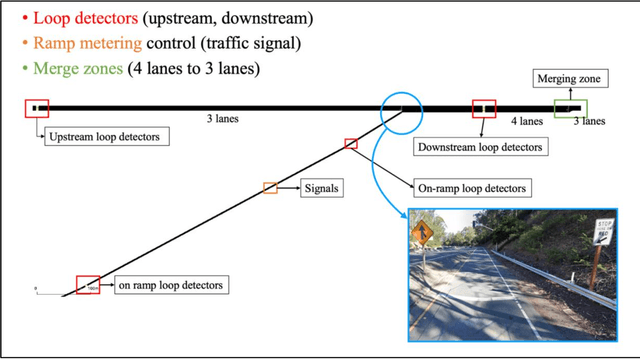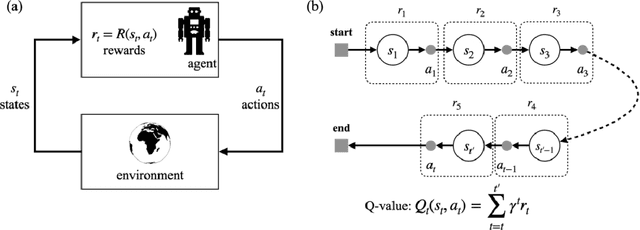Lee D Han
Analyzing Robustness of the Deep Reinforcement Learning Algorithm in Ramp Metering Applications Considering False Data Injection Attack and Defense
Jan 28, 2023



Abstract:Decades of practices of ramp metering, by controlling downstream volume and smoothing the interweaving traffic, have proved that ramp metering can decrease total travel time, mitigate shockwaves, decrease rear-end collisions, reduce pollution, etc. Besides traditional methods like ALIENA algorithms, Deep Reinforcement Learning algorithms have been established recently to build finer control on ramp metering. However, those Deep Learning models may be venerable to adversarial attacks. Thus, it is important to investigate the robustness of those models under False Data Injection adversarial attack. Furthermore, algorithms capable of detecting anomaly data from clean data are the key to safeguard Deep Learning algorithm. In this study, an online algorithm that can distinguish adversarial data from clean data are tested. Results found that in most cases anomaly data can be distinguished from clean data, although their difference is too small to be manually distinguished by humans. In practice, whenever adversarial/hazardous data is detected, the system can fall back to a fixed control program, and experts should investigate the detectors status or security protocols afterwards before real damages happen.
 Add to Chrome
Add to Chrome Add to Firefox
Add to Firefox Add to Edge
Add to Edge